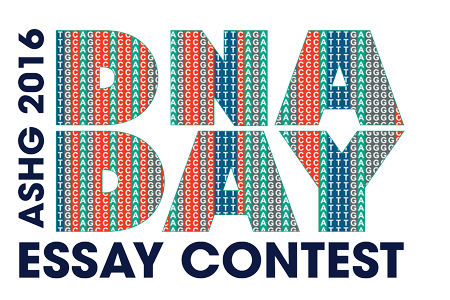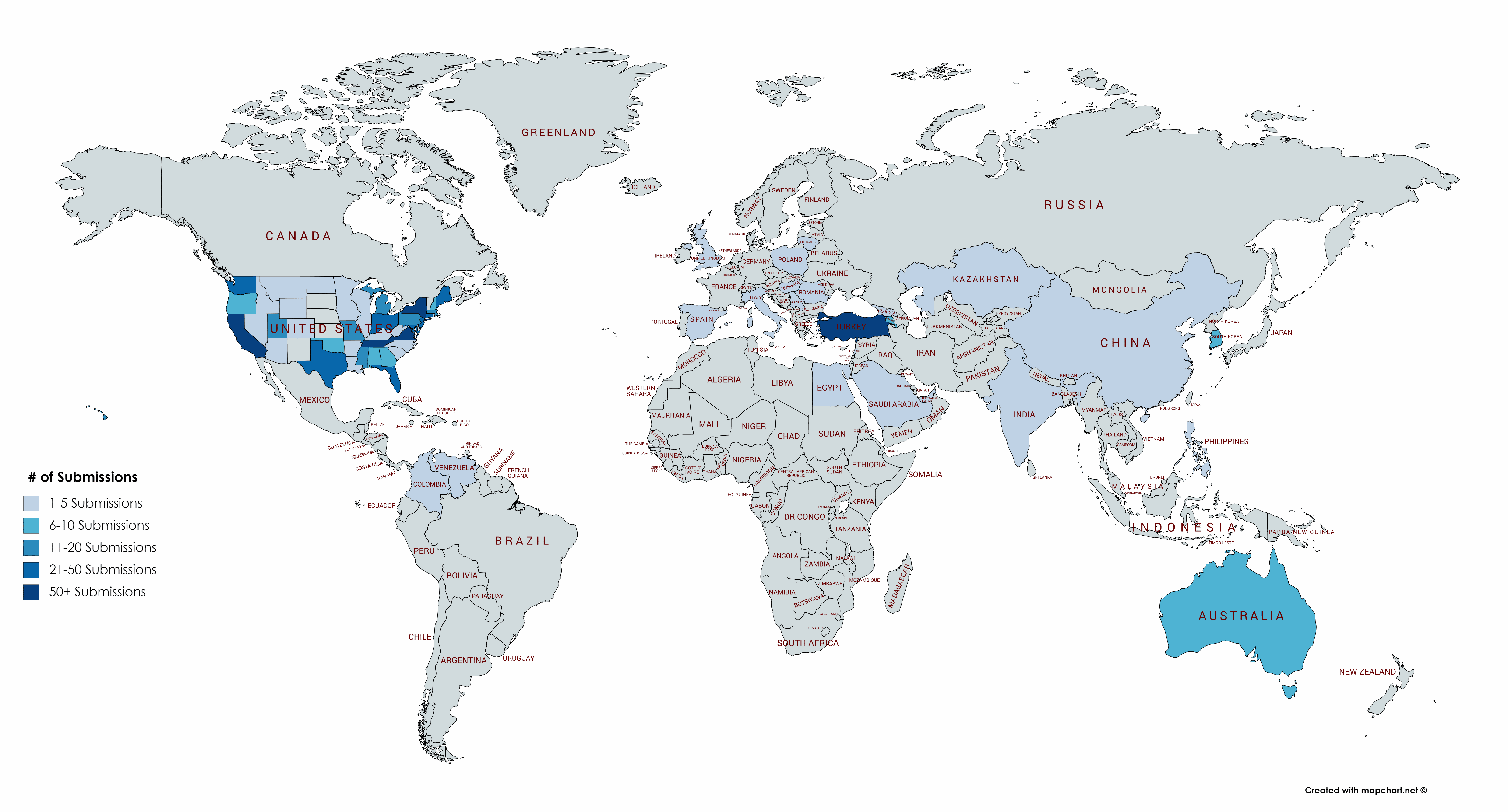
Congratulations to our winners and thank you all for participating. Happy DNA Day!
Thank you for making this our most successful year yet! We received a record high number of submissions from students in 44 U.S. states and 23 foreign countries, including Colombia, Antarctica, New Zealand, and Ukraine. We would also like to thank the more than 400 ASHG members who participated in judging the essays, as well as our sponsor for this year’s contest, Embi Tec, creator of the MiniOne System for real time electrophoresis in the classroom!
 2016 Question
2016 Question
Choose a genetic test that is currently available for a condition or disease that does not cause symptoms until adulthood (i.e., an adult-onset condition such as hereditary breast cancer). Describe how the test works and how certain the test results are. Then, either defend or refute the recommendation below from ASHG’s recent position statement on pediatric genetic testing.
“Adolescents should be encouraged to defer predictive or pre-dispositional testing for adult-onset conditions until adulthood because of the complexity of the potential impact of the information at formative life stages.”
2016 Winners
1st Place: Stella Ma, Grade 11
Teacher: Cindy Kellor
School: James Madison Memorial High School
Location: Madison, WI
2nd Place: Jilian Pesce, Grade 11
Teacher: Maria Zeitlin
School: Smithtown High School East
Location: St. James, NY
3rd Place: Alexis Schneider, Grade 11
Teacher: Megan Gallagher
School: Upper Dublin High School
Location: Fort Washington, PA
3rd Place: Dhruv Sharma, Grade 11
Teacher: Pippa Haley
School: United World College of South East Asia, Dover Campus
Location: Singapore, SG
Honorable Mentions
| Ilan Bocain Yeshiva University of Los Angeles, Boys High School Los Angeles, CA Teacher: Vickie Bellomo |
Stacy Okin North Shore Hebrew Academy High School Great Neck, NY Teacher: Amie Roberts |
| Zanzan Brink Oregon Health & Sciences University Partnership for Scientific Inquiry Program Portland, OR Teacher: Richard Rosenbaum |
Elizabeth Phelan The Davidson Academy of Nevada Reno, NV Teacher: Martin Braik |
| Sanjana Eranki Smithtown High School East St. James, NY Teacher: Maria Zeitlin |
Sarah Sachar Winston Churchill High School Potomac, MD Teacher: Virginia Brown |
| Norah Gordon Bergen County Academies Hackensack, NJ Teacher: Carol Zepatos |
Arjun Somayazulu Oregon Health & Sciences University Partnership for Scientific Inquiry Program Portland, OR Teacher: Richard Rosenbaum |
| Zoe Klein Northern Secondary School Toronto, ON Teacher: Danielle Gauci |
Ruojia Sun Stuyvesant High School New York, NY Teacher: Maria Nedwidek-Moore |
Where in the world our submissions come from:

About the Contest
The contest aims to challenge students to examine, question, and reflect on important ideas and issues related to human genetics. Competitive essays are expected to convey substantive, well-reasoned, and evidence-based arguments that demonstrate deep understanding.
Essays are evaluated through three rounds of judging, and every essay is read by a minimum of three judges. Top-scoring essays have typically been scored by a dozen or more judges.
Questions/Comments: Contact dnaday@ashg.org
